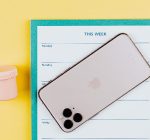How Technology is Revolutionizing Custom Medicine Boxes
Technology has rapidly transformed various aspects of our lives, and one of the most notable areas where its impact has been felt is healthcare. The integration of technology in medicine boxes has revolutionized the way medications are managed, with smart, connected, and personalized solutions leading the way. In this article, we will delve into the advancements in custom medicine boxes brought about by technology, exploring how these innovative solutions are transforming healthcare delivery and improving patient outcomes.
Introduction to Custom Medicine Boxes
The use of technology in healthcare has become increasingly important in recent years, as it has the potential to significantly enhance patient care and improve health outcomes. Among the various applications of technology in healthcare, medicine boxes have emerged as an area of focus. Medicine boxes, traditionally used to store and dispense medications, have evolved to become smart, connected, and personalized solutions that are changing the way medications are managed.
Evolution of Custom Medicine Boxes
Medicine boxes have come a long way from their humble beginnings as simple containers for storing medications. In the past, custom boxes were basic and offered limited functionalities. However, with the advancements in technology, medicine boxes have evolved to become sophisticated devices that offer a wide range of features and benefits.
Section 2: Smart Medicine Boxes
Smart medicine boxes are a prime example of how technology has transform healthcare. These innovative devices are equipping with advance technologies that enable them to perform tasks beyond just storing and dispensing medications. They are designed to be user-friendly and offer a host of features that make medication management easier and more convenient for patients.
Features and Benefits
Smart medicine boxes come with a plethora of features that are designing to improve medication adherence and patient outcomes. These features include:
- Medication reminders: Smart medicine boxes are equipping with built-in alarms and reminders that alert patients when it’s time to take their medications. This helps patients stay on track with their medication schedules and ensures that they take their medications as prescribe.
- Medication tracking: Smart medicine boxes have the ability to track medication usage, providing patients and healthcare providers with real-time data on medication adherence. This allows for better monitoring and management of chronic conditions, leading to improved health outcomes.
- Medication dispensing: Smart medicine boxes can dispense medications in pre-determine dosages, eliminating the need for patients to manually measure and dispense their medications. This reduces the risk of medication errors and ensures that patients receive the correct dosage.
Connected Medicine Boxes
Connected medicine boxes are another significant advancement in medication management, driven by the Internet of Things (IoT) technology. These devices are designing to be interconnecting, allowing for seamless communication and data exchange between different healthcare devices and systems.
Healthcare
The IoT has revolutionize healthcare by enabling connecting devices to collect, analyze, and share data in real time. Connect medicine boxes leverage IoT technology to enable various functionalities, such as:
- Remote monitoring: Connect medicine boxes can be remotely monitoring by healthcare providers, allowing them to track medication usage, monitor patient adherence, and intervene if necessary. This can help identify potential issues early and prevent medication-relating complications.
- Data integration: Connect medicine boxes can integrate with other healthcare devices, such as wearables or health monitors, to gather data on patients’ health status. This data can be used to personalize medication plans and optimize treatment regimens, leading to improve patient outcomes.
- Automated alerts: Connect medicine boxes can generate automate alerts or notifications to patients, caregivers, or healthcare providers, in case of miss doses or medication interactions. This helps ensure timely medication administration and reduces the risk of medication errors.
Benefits and Challenges
Connect medicine boxes offer several benefits in medication management, including improving medication adherence, reduced medication errors, and better patient outcomes. These devices can also help healthcare providers optimize treatment plans and improve medication inventory management.
However, there are also challenges associating with connecting medicine boxes. These include concerns about data privacy and security, interoperability issues, and the need for technical expertise to set up and maintain these devices. Overcoming these challenges will be crucial for the widespreading adoption and successful implementation of connect medicine boxes in healthcare settings. How To Fix [pii_email_db541cc0a6a583d62435] Error Solved
Personalized Medicine Boxes
Personalize medicine boxes are revolutionizing medication management by tailoring medication plans to individual patient’s needs, preferences, and health conditions. These devices leverage data and advance algorithms to create customize medication plans that optimize treatment outcomes.
Customized Medication Plans
Personalizing medicine boxes use patient-specific data, such as medical history, genetic information, and lifestyle factors, to create customizing medication plans. These plans take into account patients’ unique needs and health conditions, ensuring that medications are prescribe and administer in the most effective and safe manner.
Personalizing medicine boxes can also consider factors such as medication allergies, potential drug interactions, and dosing schedules to create medication plans that are optimize for each patient. This helps improve medication adherence, reduce the risk of medication-related complications, and enhance patient outcomes.
Impact on Patient Experience
The impact of personalizing rigid boxes on patient experience is significant. Patients can benefit from tailoring medication plans that are designing to meet their specific needs, preferences, and health conditions. This results in a more patient-centric approach to medication management, where patients feel empowered and engage in their treatment plans.
Personalizing medicine boxes also help patients stay informed about their medications. These devices provide information about the medications, dosages, and potential side effects, helping patients make informed decisions about their medications. Patients can also receive reminders and notifications about their medication schedules, reducing the likelihood of missed doses or medication errors.
Conclusion
In conclusion, technology is revolutionizing custom boxes, transforming them into smart, connect, and personalizing solutions. These advancements have significant implications for medication management in various healthcare settings, including home healthcare, hospitals, and telehealth. Smart medicine boxes provide reminders, tracking, and dispensing features that improve medication adherence and streamline medication management processes. Connecting medicine boxes leverage IoT technology to enable remote monitoring, data integration, and automating alerts, leading to improved patient outcomes. Personalized medicine boxes create customizing medication plans that are tailoring to individual patients’ needs, preferences, and health conditions, enhancing patient experience and safety.





